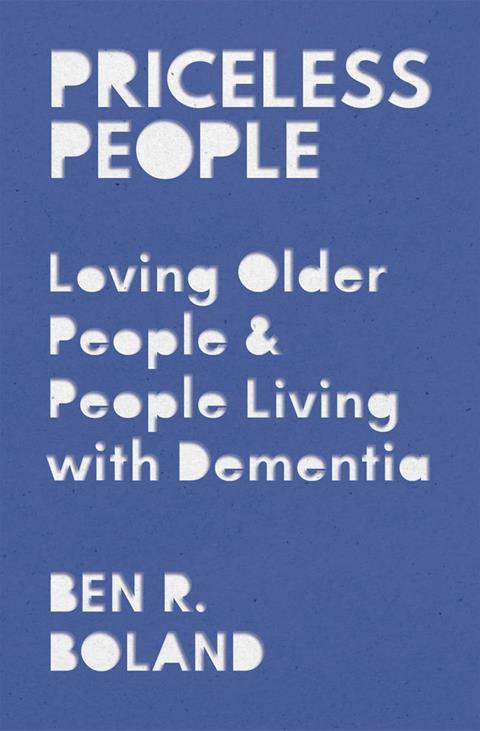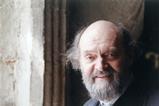Premier Christianity uses cookies Read our cookie policy.
By 2025-11-04T16:37:00+00:00
Ben Boland’s handbook, born from real pastoral experience, challenges ‘Christian ageism’ while offering sensitive, practical guidance for meaningful ministry among older people and those with dementia, says our reviewer
This isn’t the first time I’ve reviewed a book its author wishes they’d had when starting out in ministry. In Ben Boland’s case, that sentiment rings true – Priceless People: Loving Older People and People Living with Dementia (Christmas Focus) is full of hard-won insight and practical guidance drawn clearly from real experience.
Written to help Christians share Jesus’ love more effectively with older people and those living with dementia, Boland’s book draws on his pastoral heart and 15 years of chaplaincy experience – a foundation first laid through a well-received series of articles he wrote for the Australian Mothers’ Union magazine.
He begins by asserting our responsibility to love older people and people living with dementia, but notes that getting to know, learn from and engage with them is also “an incredible blessing”. He notes too that the commandment to honour our parents is not limited to when we are children.
Boland poses a provocative question: are we guilty of “Christian ageism”?
He challenges churches and denominations to take an honest look at their priorities, asking: “What proportion of resources – leadership, time, and finances – is focused on people under twenty, compared with those over eighty?”
At just 118 pages in large print (plus an appendix on creating a sensory garden), this is a short but richly practical read. Boland’s advice reflects deep sensitivity and insight into what truly matters to older people. He observes, for instance, that: “often (and particularly when visiting people with moderate to advanced dementia), multiple short visits may be more effective than extended ones.” He stresses that being fully present is a skill to be cultivated, and even offers gentle reminders – such as explaining before you play music from your phone, so the person doesn’t assume you’re checking emails or playing games.
The book is intentionally concise. Boland avoids lengthy definitions or material that could quickly become outdated, instead directing readers to websites better equipped to reflect the latest research and understanding. Nevertheless, the chapter offering a theological justification for multi-sensory ministry seems superfluous — after all, the Eucharist already engages touch and taste, and hymns draw on hearing and sight. Still, its inclusion reflects Boland’s thoroughness and commitment to exploring every angle of his subject. He follows this with a practical chapter, much of which will be familiar to those already engaged in multi-sensory ministry. That said, his suggestion to celebrate St Patrick’s Day with plenty of green and even a Guinness tasting is likely a first for many churches.
The book functions well as a kind of checklist, with useful ideas such as including images or word games on service sheets for seasonal festivals. Boland’s preference for printing out materials — from Bible passages to prayers — so people can take them home and extend their spiritual engagement is another example of the thoughtful, experience-based insights threaded throughout.
The chapter on practical tips also covers a wide range of sensitive and essential topics — from maintaining confidentiality to ensuring proper ventilation in rooms where oxygen concentrators are used. Boland also addresses and deals with both inclinations towards – and the aftermath of – suicide.
One particularly valuable chapter focuses on ministering to those who are non-verbal. Here, Boland encourages readers to move beyond merely coping in such situations but to engage meaningfully and make a positive difference. As throughout the book, his approach is grounded in the “three Ps”: prayer, presence, and pastoral care – a simple yet profound framework for ministry among older people.
Another important chapter explores the theme of boundaries, beginning with those Jesus modelled for his own wellbeing – limiting how many people he could minister to and seeking solitude for prayer – and the societal ones he intentionally broke, such as touching lepers and eating with outcasts. Boland outlines four key boundaries he sets for himself when visiting care homes: avoiding certain topics, responding appropriately to abuse, keeping visits to a healthy length, and practising self-care.
Boland doesn’t waffle, but near the end, he is particularly punchy when setting out tips for end-of-life care. Presented as clear bullet points, his tips are practical – handy for a quick recap before meeting someone.
The book also considers broader themes such as the Church, preaching, and voluntary assisted dying. While these topics may not apply to every reader, their inclusion ensures the book remains comprehensive and relevant for those navigating these complex areas of ministry.
Throughout, Boland’s extensive footnotes add valuable depth – offering practical guidance, scriptural references, and links to resources ranging from pastoral supervision to Messy Church sessions for Easter and Christmas.
It’s easy to imagine Priceless People becoming a go-to reference for anyone involved in pastoral ministry with older people, a book to regularly dip into for help and support.
Priceless People: Loving Older People and People Living with Dementia (Christmas Focus) by Ben R. Boland is out now. 



Grab this Deal!
We’re celebrating a remarkable journey from our humble beginnings as Buzz in the 1960s to the vibrant, multi-platform publication we are today. One thing has remained constant: our commitment to connecting faith with the world around us. To celebrate our birthday, we are offering you a Print and Digital subscription for just £24 your first 12 months!
Subscribe Today
*Offer applies in UK only, but check here for our overseas offers
2025-10-27T17:22:00Z
Historian Janet Gough’s richly illustrated survey of stained glass in English cathedral reveals how this ancient art form continues to communicate biblical truth, says our reviewer
2025-10-27T17:07:00Z
Charles Stanley’s posthumous 90-day devotional provides a clear roadmap for Christians seeking purpose and peace through daily scripture, reflection and practical faith exercises, says our reviewer
2025-10-22T16:28:00Z
Explaining Guy Fawkes Night to American friends made Jeff Lucas realise how bizarre our traditions can seem when we forget their meaning – a lesson that applies equally to Christian worship
2025-10-29T15:09:00Z
As Nobody Wants This returns for a second season, Bex Chapman commends it as a refreshingly realistic portrayal of what happens when love crosses religious boundaries
2025-10-20T09:05:00Z
Spanning doo-wop fame, personal struggle, enduring love and a deepening Christian faith, Dion: The Rock & Roll Philosopher is more than a glossy fan keepsake – it’s a surprisingly wise and rewarding read, says our reviewer
2025-10-20T08:45:00Z
Completed after his death and drawn from his PhD thesis, Ewan Bowlby’s Borrowed Stories explores how the arts can help patients find meaning and hope in the face of cancer
Site powered by Webvision Cloud

